Share
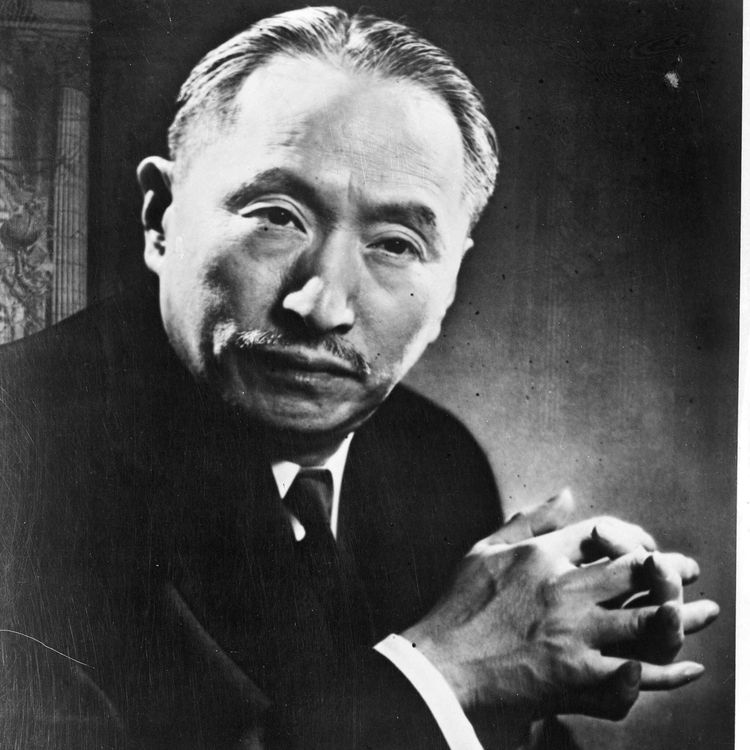
The Chinese Revolution
Wellington Koo, the Versailles Treaty and the May Fourth Movement
The Chinese had high hopes for the negotiations in Versailles after the end of the First World War. Wellington Koo argued the Chinese case ably. China wanted to retake control of its Shandong Province, but instead Japan continued to control it because of agreements signed during the war. Then it became clear that Duan Qirui and his Anhui Clique had benefited from Japanese funds in exchange for signing away Shandong to Japan.
The May Fourth Movement saw an eruption of student anger, supported by intellectuals, businesses and workers. There was even a general strike in Shanghai. The seeds of Chinese Communism were being planted two years before the founding of the Chinese Communist Party.
Behind the scenes, provincial warlords and officials supported the May Fourth Movement as a way of undermining Duan Qirui and his Anhui Clique. They could genuinely use patriotism to criticize Duan's betrayal of China to Japan.
These tensions among warlords would soon reach a boil.
Image: "File:Vi Kyuin Wellington Koo Chinees-Taiwanees politicus, diplomaat en rechter. Mede, Bestanddeelnr 900-8984.jpg" by Anefo is marked with CC0 1.0.
More episodes
View all episodes
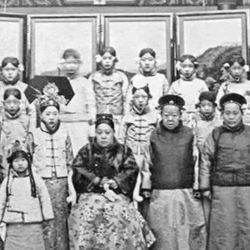
Update End of April 2023
01:55||Season 1, Ep. 0Recorded at the end of April, 2023, this recording summarizes the episodes to date and what to expect in the coming episodes as we transition from the Qing Dynasty to the Republic of China.Image: "File:Consorts of Tongzhi and Guangxu.jpg" by Anonymous Court Photographer is licensed under CC BY-SA 4.0.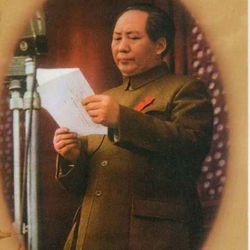
1. Episode 1 - Introduction
01:04||Season 1, Ep. 1Welcome to the first episode of the Chinese Revolution podcast.This is a podcast series for those who believe that understanding China and its history is important. This show is about the Chinese Revolutions and the events leading up to them.I was inspired by Mike Duncan’s excellent podcast series called Revolutions. A big thank you to him. Mike’s final revolution was the Russian Revolution. Since he did not continue his series, this podcast is meant to follow Revolutions with a detailed look at Chinese history and the Chinese Revolution. The Russian Revolution was of course a major contributor towards the Chinese Revolution…but not a straight line.Thanks for listening.Cover art: "Mao Zedong. 1893-1976" by josephbergen is licensed under CC BY-NC-N For more information, sources and content see: https://chineserevolution.substack.comOr enjoy The Chinese Revolution YouTube channel: https://www.youtube.com/channel/UCCOjBYMNC_3xjQXKv6ab9YA?sub_confirmation=1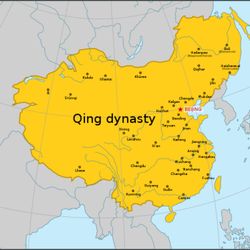
2. Episode 2- The Great Qing
05:06||Season 1, Ep. 2An introduction to the Great Qing State. The Qing replaced the Great Ming and ruled from 1644 until 1911. The vast empire ruled over 400 million subjects under Manchu leadership.When the Qing met the Europeans arriving by sea, they saw no reason to change. But owing to a focus on Confucius and classical education, Qing officials were developing more slowly than the new arrivals. This became clear with the Opium War and the reverberations then spread throughout the Qing territories. When the Qing Dynasty fell, it was not replaced by a new dynasty, but by the Republic of China."Map of Qing dynasty 18c.svg" by Samhanin is marked with CC0 1.0.For more information, sources and content see: https://chineserevolution.substack.comOr enjoy The Chinese Revolution YouTube channel: https://www.youtube.com/channel/UCCOjBYMNC_3xjQXKv6ab9YA?sub_confirmation=1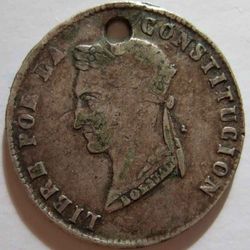
3. Episode 3- Silver during the Qing Dynasty
06:31||Season 1, Ep. 3In this introductory episode, the disruption of silver coins to the Qing Dynasty is discussed. The Qing collected taxes in silver but did not control silver supply or minting. As a result, Latin American revolutions impacted silver coins, changed trade flows and created economic disturbances in the Qing Dynasty just before the Opium War.Image: "BOLIVIA, 1855 ---HALF DOLLAR SIZED SILVER COIN,UNSURE OF DENOMINATION b" by woody1778a is licensed under CC BY-SA 2.0.You can support this show through Buy me a coffee. https://www.buymeacoffee.com/thechineserevolutionFor more information, sources and content see: https://chineserevolution.substack.comOr enjoy The Chinese Revolution YouTube channel: https://www.youtube.com/channel/UCCOjBYMNC_3xjQXKv6ab9YA?sub_confirmation=1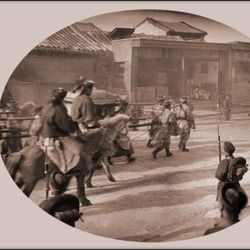
4. Episode 4- The Examination System
04:21||Season 1, Ep. 4An introductory episode about the Examination System and corruption of officials during the Qing Dynasty. The three sets of examinations required before entry into Chinese government leadership were grueling. Candidates rarely passed the examinations. The Manchu elite benefited from an alternative, easier examination system. Unsuccessful examination candidates often began rebellions. As a result, corruption, patronage and resentment were part of the Qing Empire.Image: "Qing Court Return, The Emperess Dowerger [1902] George E. Morrison [RESTORED]" by ralphrepo is licensed under CC BY 2.0.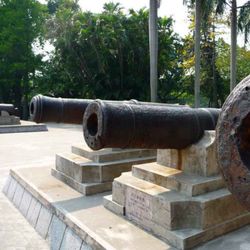
5. Episode 5 - Introducing the Opium War
27:52||Season 1, Ep. 5An introduction to the Opium War between Great Britain and the Qing Empire, including introductions of major characters. The Opium War was considered the beginning of China's Century of Humiliations. Lu Kun and William Napier do battle outside Guangzhou. Lin Zexu seizes 20,000 chests of British opium and destroys them. The British seize Hong Kong and Lin then cuts off British food and water. War is coming.Image: "The Opium War Museum Humen Dongguan" by dcmaster is licensed under CC BY-NC 2.0.You can support this show through Buy me a coffee. https://www.buymeacoffee.com/thechineserevolutionFor more information, sources and content see: https://chineserevolution.substack.comOr enjoy The Chinese Revolution YouTube channel: https://www.youtube.com/channel/UCCOjBYMNC_3xjQXKv6ab9YA?sub_confirmation=1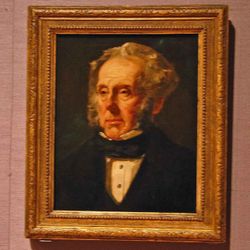
6. Episode 6 - Whales and Crocodiles
26:11||Season 1, Ep. 6Lin Zexu's destruction of British opium causes debate in London. But the Whig government has plenty of other crises. Lord Palmerston makes demands of China and sends warships in spite of reluctance at home. Opposition to a war with China is debated in Parliament.The British use newly seized Hong Kong as a base, battle with the Chinese by Guangzhou and bombard and then make an amphibious assault on Zhoushan Island by Shanghai. The sail as far as Tianjin. The Daoguang Emperor receives Lord Palmerston's letter and replaces Lin Zexu. The British are wined and dined and sail back south to see if Palmerston's demands are met.Here is a map showing highlights from the original Opium War between Great Britain and the Qing Dynasty of China.https://www.google.com/maps/d/edit?mid=1avTI5eEAq5yBQoW4ZFg7FnUmEM6Og_c&usp=sharingImage: "National Portrait Gallery - Lord Palmerston - Harry Redknapp's Grandad" by Gareth1953 All Right Now is licensed under CC BY 2.0.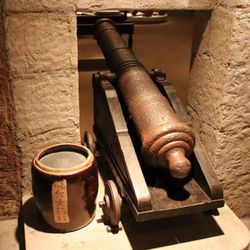
7. Episode 7 - Charles Elliott's Opium War
30:27||Season 1, Ep. 7The British capture Chinese forts and take Guangzhou. British trade returns to southern China. Rural peasants self-organize against the British invaders. Charles Elliott is replaced by British authorities in London.Image: "19th Century Cannon" by Gary Lee Todd, Ph.D. is marked with CC0 1.0.You can support this show through Buy me a coffee. https://www.buymeacoffee.com/thechineserevolution
8. Episode 8 - Henry Pottinger and the End of the Opium War
32:49||Season 1, Ep. 8In this episode, Henry Pottinger takes over as British Superintendent of Trade. The British retake Zhoushan Island, which had been abandoned by Charles Elliott and advances up the Yangtze River. Negotiations conclude the Opium War with the Treaty of Nanjing. It is now remembered as the first unequal treaty and the beginning of a century of humiliations for China.Image: Kongma, CC BY-SA 4.0 via Wikimedia CommonsYou can support this show through Buy me a coffee. https://www.buymeacoffee.com/thechineserevolutionFor more information, sources and content see: https://chineserevolution.substack.comOr enjoy The Chinese Revolution YouTube channel: https://www.youtube.com/channel/UCCOjBYMNC_3xjQXKv6ab9YA?sub_confirmation=1